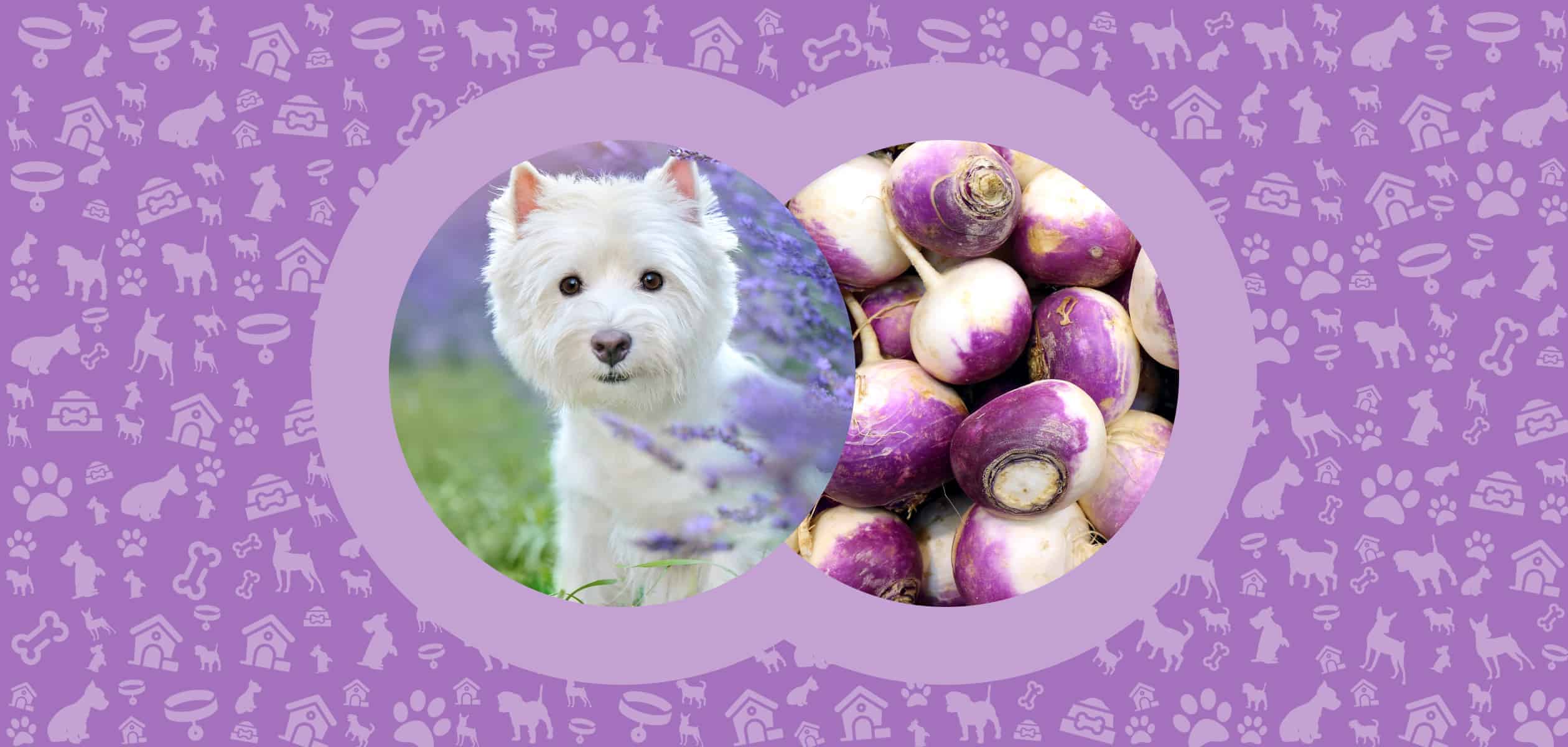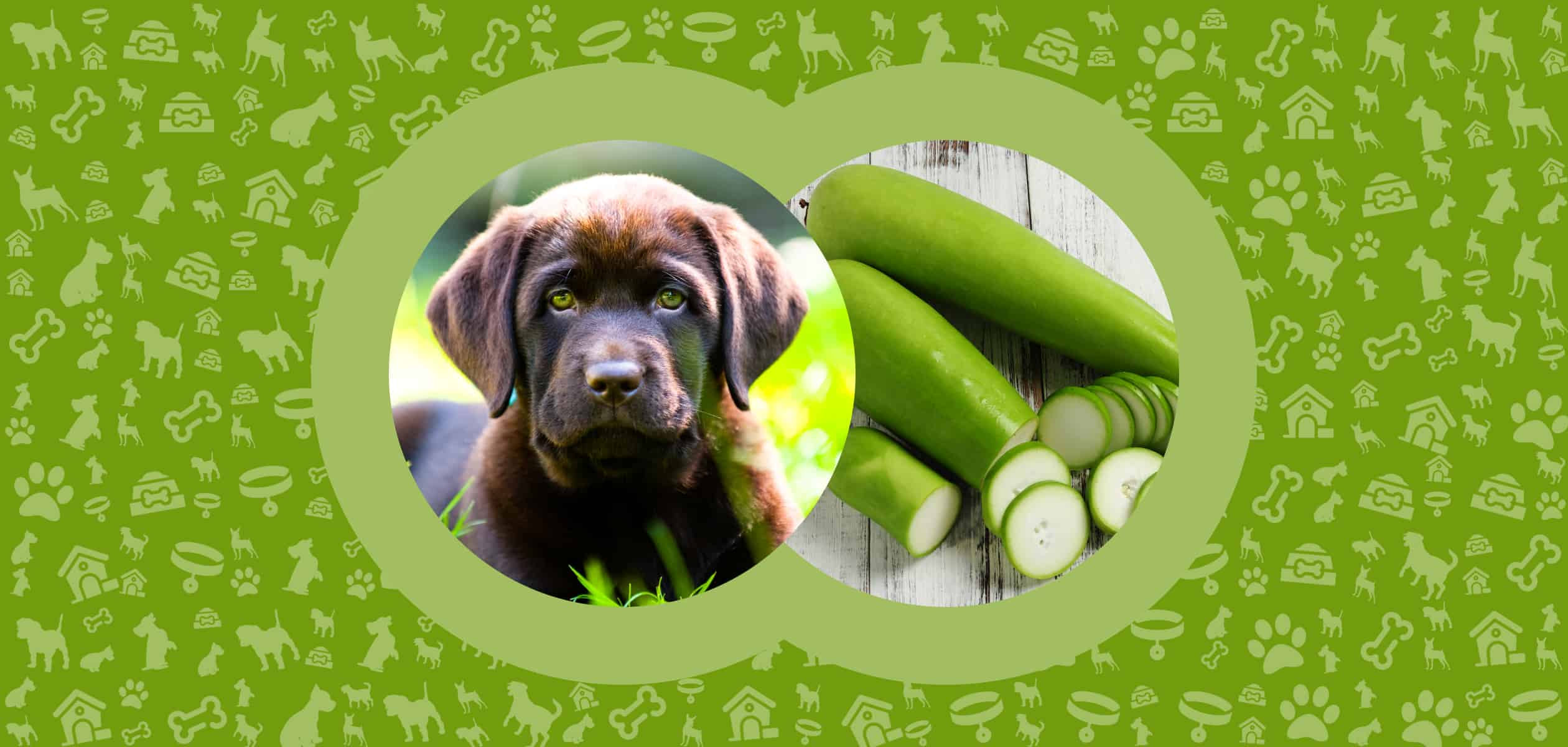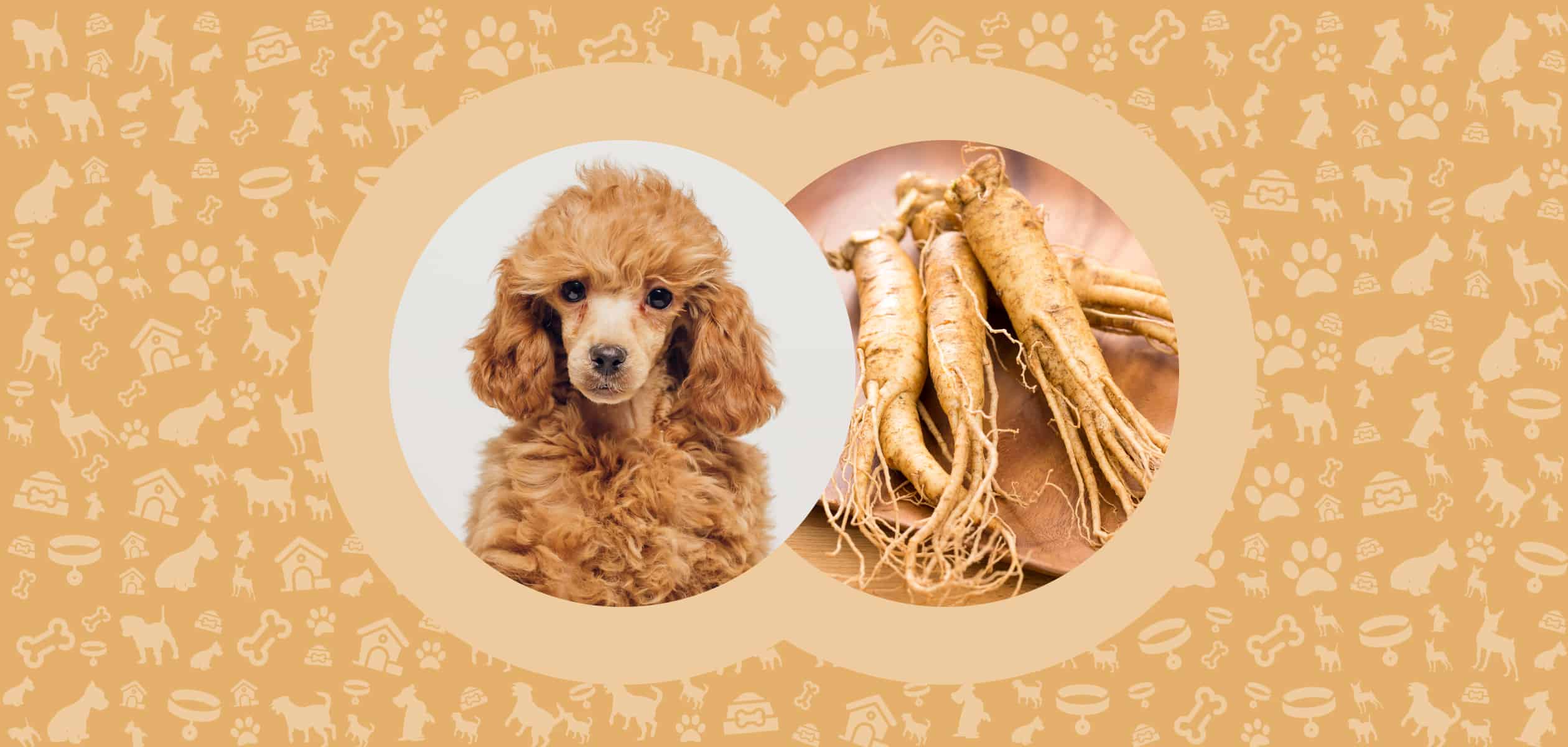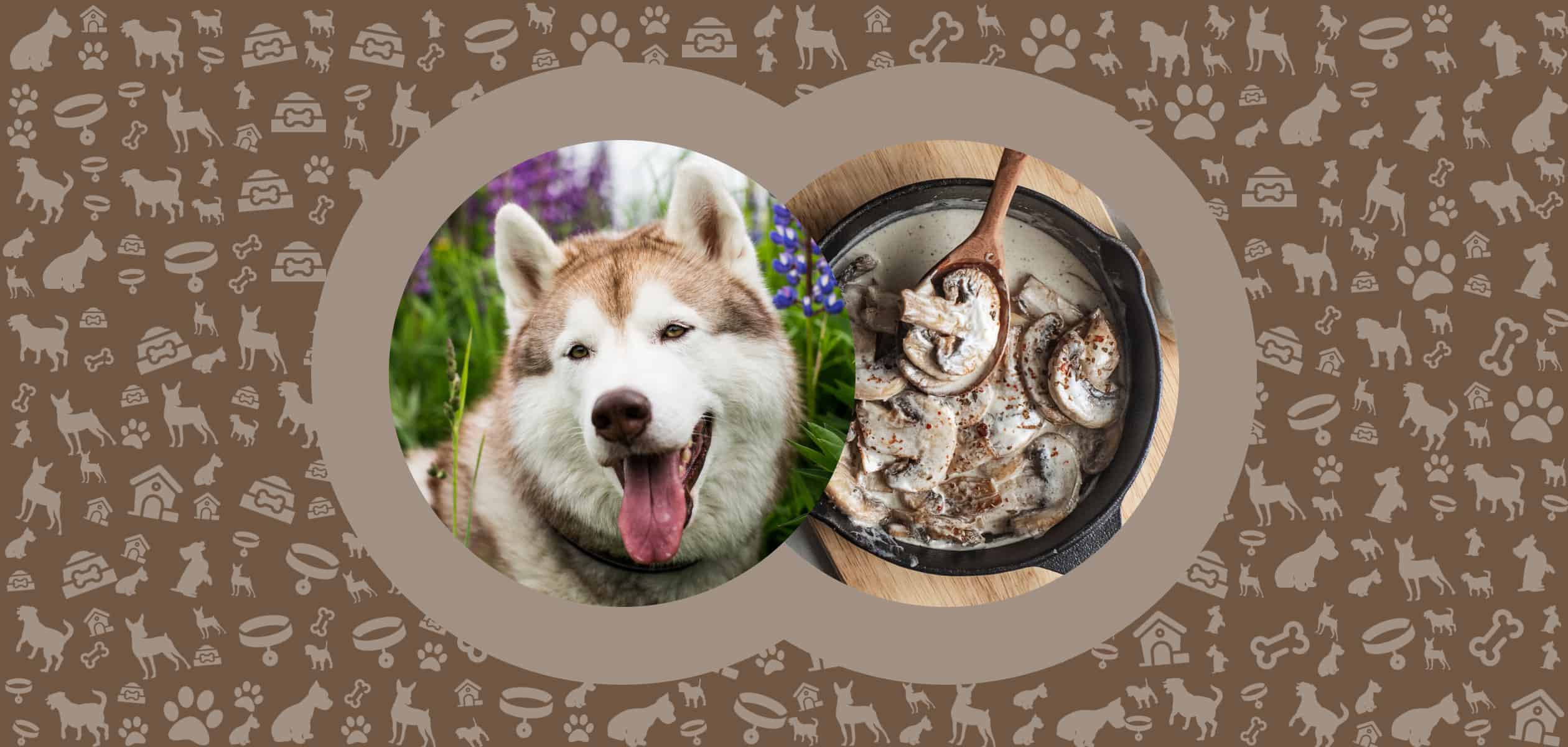Introduction
Turnips are a tasty and nutritious vegetable, but can your dog eat turnips? Turnips, which belong to the Brassica genus, are a versatile root vegetable that is commonly eaten as a side dish. Turnips contain high levels of vitamin C, potassium, and fiber. This makes turnips a healthy addition to any dog’s diet.
In this article, we’ll discuss the benefits turnips could offer your pet, how much turnip is safe, whether there are any risks involved with feeding turnip to your dog, and several serving ideas, too. Like other cruciferous veggies, turnips feature plenty of beneficial nutrients for pets and are also low in calories.
Benefits for Dogs
Many researchers and veterinarians believe that the nutrients found in turnips are helpful with dogs that suffer from kidney disease as they act as a natural diuretic, which means that they help create urine through increasing kidney filtration and thus they stimulate kidney function.

Fiber
Turnips are low in calories and fat, which is excellent for dogs that need to maintain or lose weight. Turnips satisfy your dog’s need to chew, which can help reduce destructive behavior in some dogs. Turnips are full of fiber, so adding this to your dog’s diet can aid in digestion.
Antioxidants
Turnip contains high levels of Vitamin C and other antioxidants, which can boost your dog’s immune system. Antioxidants from turnips may also be beneficial in preventing cancer in dogs.
Vitamin C
Turnips are full of vitamin C, an essential nutrient that helps your dog build strong, healthy bones. Vitamin C also supports your dog’s connective tissues and aids in the absorption of iron.
Vitamin A
Turnips contain over three times the amount of vitamin A as carrots, an essential nutrient that can help your dog maintain clear eyesight and is needed for healthy skin and teeth.
Vitamin K
Turnip greens also contain large amounts of vitamin K, which helps your dog’s blood clot. Due to the high levels of vitamin K in turnips, they should not be given to dogs already on blood thinners. If your dog has been prescribed certain medications by your vet, such as warfarin (Coumadin), it’s important to limit or avoid feeding turnips.
Potassium
Turnips are full of potassium, which helps keep the heart healthy by regulating blood pressure. Potassium also aids in muscle growth and controls your dog’s blood sugar levels.
Minerals
Turnips are packed with minerals that have a variety of positive effects on your dog’s body. Turnips contains calcium, magnesium, sodium, and phosphorus. Phosphorus is essential for healthy teeth and bones.
Calcium
Calcium helps your dog’s body develop strong bones and teeth—magnesium aids in energy production, healthy digestion, and blood sugar regulation. Sodium plays a vital role in balancing fluids and minerals throughout your dog’s body.
Protein
Turnips are a good source of protein, which can help keep your dog’s muscles strong and healthy.
Amino Acids
Turnips are rich in amino acids, which are the building block of protein. Amino acids are essential for your dog’s growth and development.
Calories & fat
Turnips are low in calories and fat, making them a great food choice if your dog is overweight.
Carotenoids
Turnips are high in carotenoids, which contribute to your dog’s healthy immune and digestive systems. Carotenoids also act like antioxidants, which reduce inflammation in your dog’s body.
How Much to Feed?
The number of turnips that you feed your dog will depend on the size and age of your pet. You should introduce small amounts into your dog’s diet and watch for any signs of side effects. You can then gradually increase the amount that you feed your dog if no symptoms occur.
Potential Risks
The high fiber content in turnips can cause some digestive issues for some dogs, so it is essential to introduce this veggie into your dog’s diet slowly. Turnips are not toxic for dogs, but some side effects can occur if your dog overeats at one time. Moreover, dogs that experience kidney disease will find this food quite beneficial for their kidney function.
The other issue stems from the fact that some types of turnips contain goitrogens, which could interfere with the production of thyroid hormones by the body. It is better to ask your vet before feeding your dog turnip and plans to introduce it slowly into your dog’s diet.
Symptoms of turnip toxicity
If you suspect that your dog has eaten too many turnips, watch for these symptoms:
- Diarrhea
- Vomiting
- Lethargy
- Loss of appetite
If you notice any of these side effects, bring your dog to a veterinarian as soon as possible.

Germ contamination
Turnips can contain salmonella, a type of harmful bacteria. Salmonella can make your dog sick if it eats too many turnips that are contaminated with it. You can avoid this side effect by thoroughly washing the turnip to remove any contaminants that may be present on the vegetable.
Pesticide contamination
Like other root vegetables, turnips are often sprayed with pesticides. This is to prevent insects from attacking the plant’s leaves. If your dog eats the leaves of a turnip, he could become sick from pesticides.
You can avoid this by washing your turnips well or purchasing organic ones. Do not feed your dog turnips from the garden if they have been treated with pesticides or chemical fertilizers.
Preparing the food
There is nothing complicated about feeding turnips to your dog. If you want to add it to your dog’s kibble, add a small amount and mix it well with the dry food.
If you’re going to incorporate turnips into your dog’s diet, you can do so with the following suggestions:
If you wish to feed it whole, chop the turnip into small pieces for your dog to chew. Turnips are suitable for dogs when cooked.
- Cut them into cubes and boil them in water until soft enough to mash up with a fork.
- Drain the water, add some low-salt chicken broth (or plain yogurt) and blend until smooth with an immersion blender.
- Feed this mixture to your dog along with his regular food or as a treat by itself. Cooked turnips can help reduce the amount of fiber in the food, which will make it easier for your dog to digest.
- You can freeze cooked turnips for later use.
Storage
Turnips are best kept in a sealed plastic container in the refrigerator. You can store turnips for up to one week in this way.
Conclusion
Can dogs eat turnips? Yes! Turnips are a healthy addition to your dog’s diet, but make sure you feed your pup no more than 10 percent of their daily calorie intake in turnips. Some dogs may not like the taste of turnips. You can mix turnips with other vegetables to make the taste more palatable.
Feeding turnips to dogs can provide health benefits, but you should introduce turnips slowly and monitor how your dog responds to ensure that the food does not cause any side effects. As usual, make sure to consult with your vet before feeding turnips to your dog.
The takeaway here is that turnips are good for your dog’s metabolism, support a healthy nervous system, and are beneficial for dogs with kidney disease as they help stimulate kidney function.
Sources
- Vegetables That Prevent May Ultimately Cure Some Cancers, 2004, Texas A&M University – Agricultural Communications
- Renal guidelines a fluid resource, 2016, Susan C. Kahler







Leave a Comment